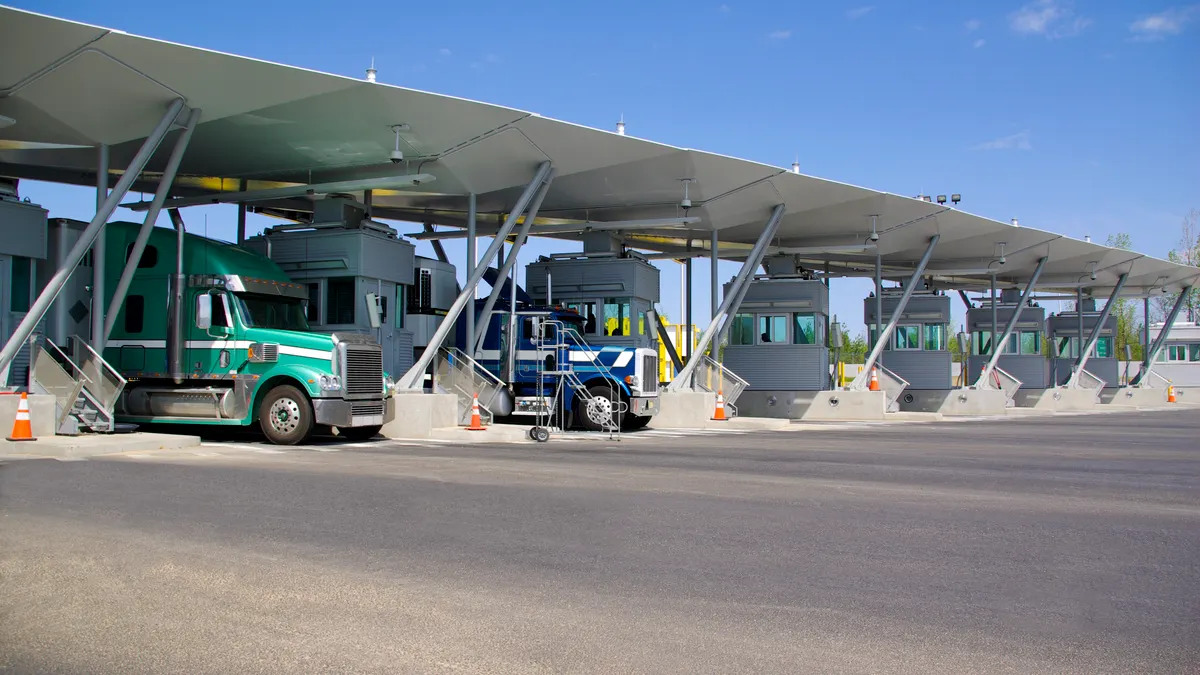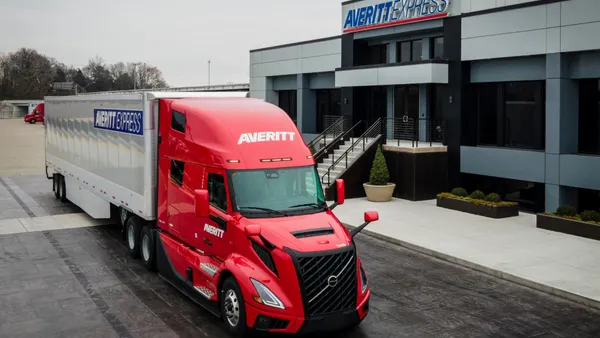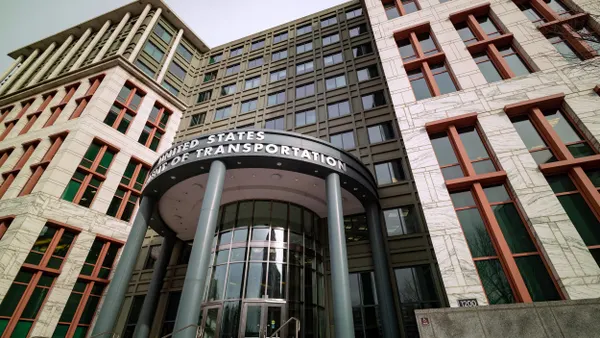Dive Brief:
- USA Truck reduced turnover by 27.8%, according to a report conducted in conjunction with WorkHound released Tuesday. One method USA Truck used was to gather feedback to understand what was causing drivers to leave.
- In the survey, 38% of drivers revealed their identities in feedback, and 84.8% of those who did said they remained with the company 30 days after taking the survey. Max Farrell, CEO and co-founder of WorkHound, said that is a very high number within the unmasked feedback group.
- More than 4,000 comments were taken from more 1,400 workers, according to USA Truck, which has 2,000 employees. USA Truck said after the comments were assessed, the company knew why 75% of its turnover was occurring. Changes were made to "alleviate the triggers" leading to workers quitting, carrier officials said.
Dive Insight:
Driver turnover is one of the industry's biggest problems, which WorkHound said for the average fleet ranges between 95% to 120% a year. In October 2019, the American Transportation Research Institute found the issue to rank sixth in its annual assessment of critical issues facing the trucking industry.
The issue had ranked at No. 3 in 2018. One reason it fell in concern, ATRI concluded, was because a softer freight market dissuaded drivers from making leaps to other carriers.
"While 2018 saw high levels of driver turnover, the softer freight market in 2019 has resulted in a somewhat mixed picture of the truck driver market," the report said. "As such, driver retention dropped three places from last year's survey."
But USA Truck said the problem was glaring — and frustrating.
"We didn't know what was causing driver frustration, and our retention was out of control," said Nick Wakefield, USA Truck VP of human resources, driver recruiting and retention. "We've gained valuable insight into the driver experience. We've truly been able to understand the triggers."
WorkHound previously worked with American Central Transport to solicit driver feedback. The carrier claimed it had reduced turnover by 30%, according to a January news release. And Roadrunner Freight reduced annual driver turnover from 140% to 75%, just by drilling into the data of the system's anonymous feedback software, according to Farrell.
Another reason for the lower ranking in concern was because fleets had tried harder at retention, and raised pay in some cases, ATRI said. But the issue is complicated.
If drivers leave, they have to be replaced. It means carriers often have to pull from each other. Sometimes, it means drivers cannot be found to fill the vacancies. As the economy recovers from the COVID-19 pandemic, a tighter freight market is causing staffing woes anew, as YRC indicated on Monday during an earnings call.
"I can tell you with 100% certainty that the capacity crunch is real," said Jamie Pierson, YRC CFO. "We are having difficulty recruiting drivers to keep up with the increase in volume."
The driver shortage is the No. 1 industry issue, according to ATRI's report.
Farrell said fleets have to assess feedback, which can be about just about any trucking issue a driver might face, from acceleration issues to health insurance. Once fleets act on the feedback given, Farrell said fleets see 90% of drivers remain for 30 days or more.
"When you get feedback, you can take it as a gift or you can take it as an insult," said Farrell. "Many companies find value for operational intelligence within feedback."








